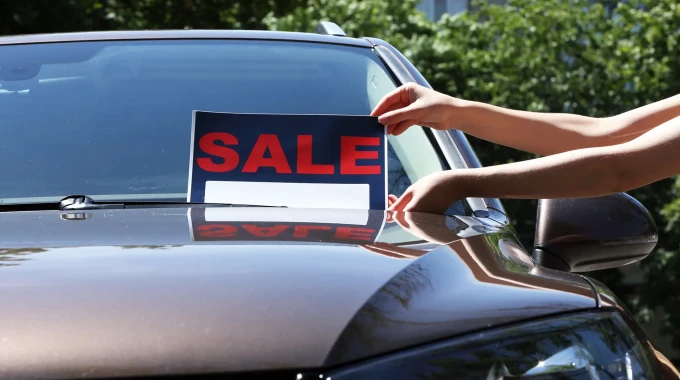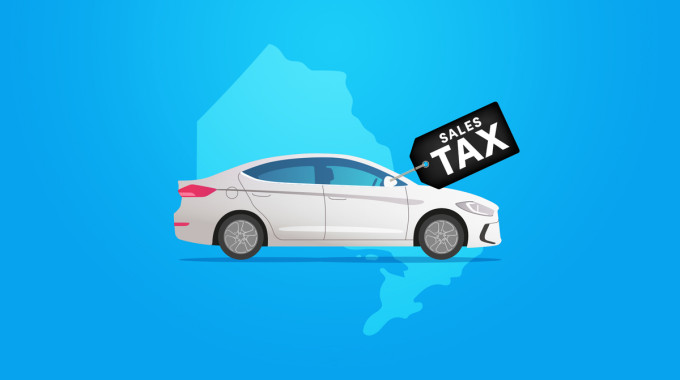
How to Get Out of Your Car Loan
There are multiple reasons why a person might want to get out of their car loan early and there are several paths that you can choose...
Car loans can be a lifeline when buying a vehicle, but if your financial situation changes you may find yourself needing to get out of your car loan, removing the monthly auto payments from your list of expenses. If you’re considering exiting your current car loan in Canada, there are several methods to explore, each with its pros, cons, and potential impact on your credit score. This guide covers essential details about a few options to help you make an informed decision.
Car Loan Forgiveness Program
In Canada, there is no official "car loan forgiveness" program that automatically cancels or reduces your auto financing debt. Unlike student loans or certain types of government debt, auto loans are privately arranged through banks, credit unions, or dealership financing arms, so lenders generally require full repayment. However, here are some alternative solutions that could work similarly:
Debt Settlement: Some lenders may be open to negotiating a debt settlement if you're in financial hardship and are unable to make your car payments on the original loan. This means they may agree to accept a lump sum payment that’s less than the total loan balance, forgiving the remainder. Debt settlement companies or a lawyer could help negotiate this, but it’s usually a last resort and will likely affect your credit.
Refinancing: Refinancing your car loan to reduce your interest rate or extend the term could lower your monthly payments, making it easier to manage. While this doesn’t forgive the debt, it may give you more breathing room if you’re struggling financially.
Voluntary Repossession
Voluntary repossession (or voluntary surrender) is a process where you return the vehicle to the lender, accepting that they will resell it to recover some of the loan balance. Here’s how it works and what to consider:
How It Works: You contact the lender, arrange to return the car, and agree that they will resell it. Once the car is sold, the remaining balance on your loan, called a deficiency balance, is still owed by you. The deficiency balance is the difference between what you owe on the loan and what the lender recoups from the sale.
Pros and Cons: The main benefit of voluntary repossession is avoiding the hassle of loan payments you can no longer afford. However, your credit score will still take a hit, as the repossession will be noted on your credit report. This option may be preferable to an involuntary repossession, which can be more damaging to your credit. Either way having a repossession on your credit report can make it challenging to secure financing with future lenders.
Financial Consequences: If there’s a significant deficiency balance after the sale, the lender may take legal action to recover this amount, including using a collection agency. Be sure to have a clear agreement with your lender about what will happen to any remaining balance.
Can a Lawyer Help You Get Out of a Car Loan?
In some cases, consulting a lawyer may be helpful in getting out of a car loan. Here’s how a lawyer could assist:
- Negotiating with Lenders: Lawyers experienced in debt or consumer rights can negotiate on your behalf, potentially helping you secure a settlement, reduced payments, or a refinancing option.
- Reviewing Loan Contracts: In cases where the loan terms are questionable or overly harsh, a lawyer might find legal reasons for a lender to release you from the contract. If the lender didn’t provide full disclosure or included hidden fees, the lawyer might leverage these findings in the financing agreement to cancel or reduce your loan.
- Debt Consolidation Advice: Lawyers can advise on whether consolidating your debts, including your car loan, might be a viable solution. Debt consolidation loans combine multiple debts into one, often with lower interest rates, making it easier to manage monthly payments.
While a lawyer’s services can be costly, it may be worth the expense if it helps you achieve financial relief or avoid credit damage.
How to Get Out of a Car Loan Without Ruining Credit
Protecting your credit score is essential when exiting a car loan. Here are some strategies to explore:
Sell the Car Privately:In many cases, you may get more for your car by selling it privately than through a trade-in or dealership buyback. The extra money can help cover your auto loan balance, especially if you’re not upside-down (owing more than the car’s value).
If this option intrigues you, the first thing you should do is research online regarding the value of your car (the car’s market value) given its year, make, model and mileage. Canadian Black Book should be your first port of call here.
It’s your responsibility to pay off the remainder of your loan. But you might be able to transfer your loan to the buyer. Contact your lender or bank to discuss your options.
When selling privately, it’s your job to ensure that repairs are made beforehand. Visit your mechanic to arrange any repairs, and get the vehicle detailed. If there are any repairs that the mechanic suggests but you don’t get around to, make sure that you disclose this information in the vehicle’s description. It might also be a good idea to include a vehicle history report so that the potential buyer can easily see if the car had any trouble in the past.
Remember to leverage all of the free online listing resources like Kijiji, Craigslist, and Facebook Marketplace, and share on your social media to reach as many people as possible and speed things up.
Pay Off the Auto Loan Early: If you have the money and want to get out of the loan as soon as possible, paying off your vehicle loan in one lump sum is probably your best option.
However, this option comes with an obvious price. In some car loan agreements, there’s a section that explains any penalties associated with an early payoff. This payoff amount will depend on what you and your current lender agreed to when discussing the terms of your contract. Therefore, you will have to pay the remaining loan principal plus the contracted payoff penalty, if there is one.
Contact your lender and request a payoff quote, you typically will have 30 to 90 days until that quote expires. Don’t request a payoff quote until you’re ready to pay back the entirety of your loan. Otherwise, you may breach the protocol that your lender has in place for an early loan exit, and it could end up costing you more in the long run.
If you decide to get out of your car loan early by paying it all back at once, check your credit report to ensure that the loan is marked as closed on your file.
Read more: Should I Pay Off My Car Loan Early?
Transfer the Loan to Another Buyer: Some lenders may allow you to transfer the car loan to another person. This could involve a family member, friend, or private buyer who is willing to take over your loan payments. Keep in mind that both you and the buyer will need to meet the lender’s qualifications for the transfer, this will include a credit check and is usually much easier to complete if the new buyer has a good credit score.
Refinance to Lower Payments: If you’re struggling to keep up with monthly payments but don’t want to exit the auto loan entirely, refinancing could be a viable option. This involves negotiating new loan terms that reduce the monthly payment amount by extending the repayment period (adding extra payments) or securing a lower interest rate.
Read More: How to Refinance Your Car Loan, and When It's Beneficial
Sell your car directly to Canada Drives
Avoid the stress of selling your car privately! With Canada Drives, you can get an instant online offer for your car. If you are happy with your offer simply drop it off at a Canada Drives location near you and get paid! It's the easiest way to sell your car in Canada.
How to Return a Financed Car in Canada
Returning a financed car can be tricky, as you’re still legally responsible for repaying the loan. Here are some ways to approach it:
Return to Dealer via Lease Buyout: If you leased the car and want to exit the contract, some dealerships may offer a car lease buyout option that allows you to return the leased vehicle and settle the outstanding balance. Keep in mind this could result in penalties or fees if you’re breaking the lease early.
Trade-In for a Cheaper Vehicle: Another strategy to consider if you want to get out of an expensive car loan is trading in your financed vehicle for something that's better suited to your budget, usually this means trading it in for a cheaper car.
Dealerships are very familiar with the trade-in process and will generally be happy to help you if your loan history is adequate and the car is in good condition.
When you trade-in a vehicle with a loan, the dealer will ideally offer you enough for your trade-in that will allow you to pay off the loan balance. Then, you can start fresh with a new car, new loan, and hopefully a lower monthly payment. However, if you owe more on the car than it's worth (also known as being upside down or having negative equity), the dealer probably won't offer you enough to pay off the entire loan. The remainder of what you owe will roll over to your new car loan.
Therefore, if you're trying to trade your car to get a lower monthly payment, trading in your vehicle might not be a great idea if you're currently upside down on your car loan. You may want to wait until you owe less than the car is worth.
Read more: How to Calculate the Trade-In Value of Your Car in 2 Minutes
Surrender the Vehicle to the Lender: In some cases, voluntary repossession might be your best option to get out of your current loan, as described earlier. Remember, this will still have consequences for your credit and might involve a deficiency balance.
Does Removing a Car Loan Affect Credit Score?
Exiting a car loan can affect your credit score in different ways, depending on the method you choose. Here’s what to keep in mind:
Early Loan Repayment: Paying off your car loan early could have a slight impact on your credit score, as it may reduce your credit mix (the variety of loans and credit types you hold). However, this is generally minimal, and the long-term impact on your credit can be positive if you avoid any late payments or defaults.
Refinancing the Loan: Refinancing typically won’t hurt your credit score, but it may involve a hard credit inquiry, which could slightly lower your score temporarily. Over time, consistent payments on a refinanced loan can improve your credit.
Repossession (Voluntary or Involuntary): Repossession is one of the most damaging options for your credit score and credit history, as it indicates you defaulted on your debt. The repossession will stay on your credit report for up to seven years, making it harder to qualify for future loans or credit at favorable terms.
Loan Transfer or Sale: If you can sell the vehicle and fully pay off the existing loan, this could help avoid credit damage. A clean repayment history (without missed payments) will positively reflect on your credit report.
How to Get Out of a Car Loan by Province
In Canada, consumer protection laws and car loan regulations vary slightly by province. Here’s a brief overview of how to handle a car loan exit depending on where you live:
- Ontario: Ontario has consumer protection laws that protect buyers from deceptive sales practices and misrepresentation. If you believe you were misled during the car sale, you may have grounds to challenge the loan or negotiate a settlement.
- Quebec: Quebec has stringent consumer protection laws that may allow you to cancel certain contracts if they were entered into under unfair terms. A lawyer familiar with Quebec’s consumer laws could help evaluate your options if the loan terms seem unfavorable or deceptive.
- British Columbia: In BC, you may have recourse if there are issues with the vehicle’s quality or if the dealership engaged in unfair practices. The BC Consumer Protection Act can provide grounds to contest a car loan under specific conditions.
- Alberta: Alberta’s laws also protect consumers from unfair practices, and the province has resources that can guide you through disputing a loan. The Alberta Consumer Protection Act might help if you were misled or if the car did not meet legal standards.
For specific advice, consult a local consumer protection office or a legal professional in your province, as they can offer insight tailored to your jurisdiction.
Conclusion
Getting out of a car loan in Canada is possible through several methods, but each has implications for your finances and credit score. Whether you opt for refinancing, a loan transfer, voluntary repossession, or negotiating with the lender, understanding each option’s pros and cons is essential. Consulting a lawyer or financial advisor can also help you make a choice that aligns with your long-term goals. Remember, while exiting a car loan can relieve immediate financial pressure, protecting your credit score and considering the costs involved will help you make the most informed decision.







